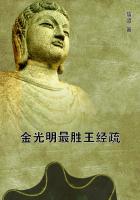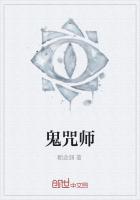Instead of remitting the money as modestly requested, the recipient of one of these choice douceurs, a lady residing in the interior of Pennsylvania, sent the letter to the mayor of the town where it was dated and postmarked, who in turn handed it over to special agent T. P. Shallcross; and he in the course of a day or two succeeded in capturing the miscreant.
This particular form of the confidence game is very old; yet in the year of our Lord eighteen hundred and seventy-five a swindler by means of it succeeds not only in maintaining himself in dashing style, but also in sporting a flashy traveling companion of the female persuasion!
Where the letters are addressed to men, the articles reported to be found in the imaginary trunk are changed to correspond to masculine habits and wants. The operators receive many singular and some entertaining replies. The following, dated long ago from a small town at the South, may serve as a sample, the orthography of the original being preserved:--
"COL. SNOWDEN, "Dear Sir,--Yours received, and you say John is dead. Poor fellow!
I always expected it. Death runs in the family. Dyed suddenly of appleplexy--eat too many apples. Well, I always thought John would hurt himself eating apples. I s'pose you had him buried. You said nothing about funeral expenses. He had a trunk--gold watch in it, &c. Well, well, what an unexpected legacy! but strange things happen sometimes. Never thought I should get a gold watch so. And he had the watch in his trunk, did he? Poor fellow! was always so particular 'bout his watch and fixings. Had two revolvers. What is them? I never heard John say anything about them. Well, you have been so kind as to write to me; just keep all the balance of the things, you can have them; but the gold watch, send that to me by express. Send immediately if not sooner."
"Very truly, "GEO. STREAM.
"P. S. My mother in law says, if you come this way, call. She likes to know all such good, kind folks."
It is safe to conclude that "Col. Snowden" never accepted the invitation to call from the hospitable mother-in-law.
A FORMIDABLE WEAPON
In the summer and fall of 1875 circulars were scattered broadcast over the country, and advertisements appeared in the weekly editions of several leading papers of New York City and other large towns, setting forth the rare merits of a weapon of destruction called "Allan's New Low-Priced Seven-Shooter." As a specimen of ingenious description, the more salient parts of the circular are herewith reproduced:--
"In introducing this triumph of mechanical genius to the American public, it is proper to say that it is not an entirely new article, but that it has lately been improved in appearance, simplicity of construction, and accuracy, having new points of excellence, ****** it superior in many respects to those first made. The manufacturers having improved facilities for ****** them cheaply and rapidly, have reduced the price to one dollar and fifty cents; and while the profits on a single one are necessarily small, this price places them within the reach of all.
"We wish it distinctly understood that this is no cheap, good-for-nothing 'pop-gun'; and while none can expect it to be 'silver-mounted' for $1.50, they have a right to expect the worth of their money, and in this new improved seven-shooter a want is supplied.
"Great care is taken in the adjustment of EACH, so that ALL are equally good and reliable. In their production no trouble or expense has been spared. An elaborate and complete set of machinery and gauges has been made, by means of which all the parts are produced exactly alike, thus insuring great uniformity in the character of the work produced."
This remarkable implement, equally useful for peace or war, is offered to an eager public at the low price of $1.50 each, or $13 per dozen. On the score of cheapness, the inventor greatly prefers the mails to the express as a vehicle for the transport of his wares. In fact, he declines to patronize the express companies at all, unless a prepayment of twenty-five per cent, accompanies each order as a guaranty of the "purchaser's good faith."
At first the enterprise succeeded even beyond the most sanguine expectations of its projector, letters with the cash inclosed pouring in by the hundred. For several months, however, after the first publication of the advertisement, "this triumph of mechanical genius," though "not an entirely new article," existed only in the comprehensive brain of the gentleman who had the greatness to discern in the imperfect work of predecessors the germs of ideal perfection. Having no seven-shooters to send, he was compelled to dishonor the requisitions of the expectant "traveler, sailor, hunter, fisherman, etc." While careful to lay aside the inclosures, he entirely forgot even to so far remember his patrons as to make a record of their names.
In due time, however, the "factory" went into operation, and the seven-shooters were actually produced. The mechanical "triumph," rudely made of a cheap metal composition, is a duplicate of a toy long used by boys to the delight of each other, and to the annoyance of their elders. The propulsive power resides in a steel spring, which has force enough to send a bird-shot across a good-sized room. The outfit would cost perhaps six or eight cents to the manufacturer. A portion of the orders were now filled, the greater part being still thrown unhonored into the waste-basket as before.
Curses both loud and deep began to be showered on the head of the swindler. Complaints having reached the department, special agent C. E. Henry started to hunt for "Wilcox & Co.," of Windsor, Ohio, for such was the direction in the advertisements and on the circular. Proceeding several miles from the nearest railroad, he found the rural settlement where the factory was supposed to be located.















